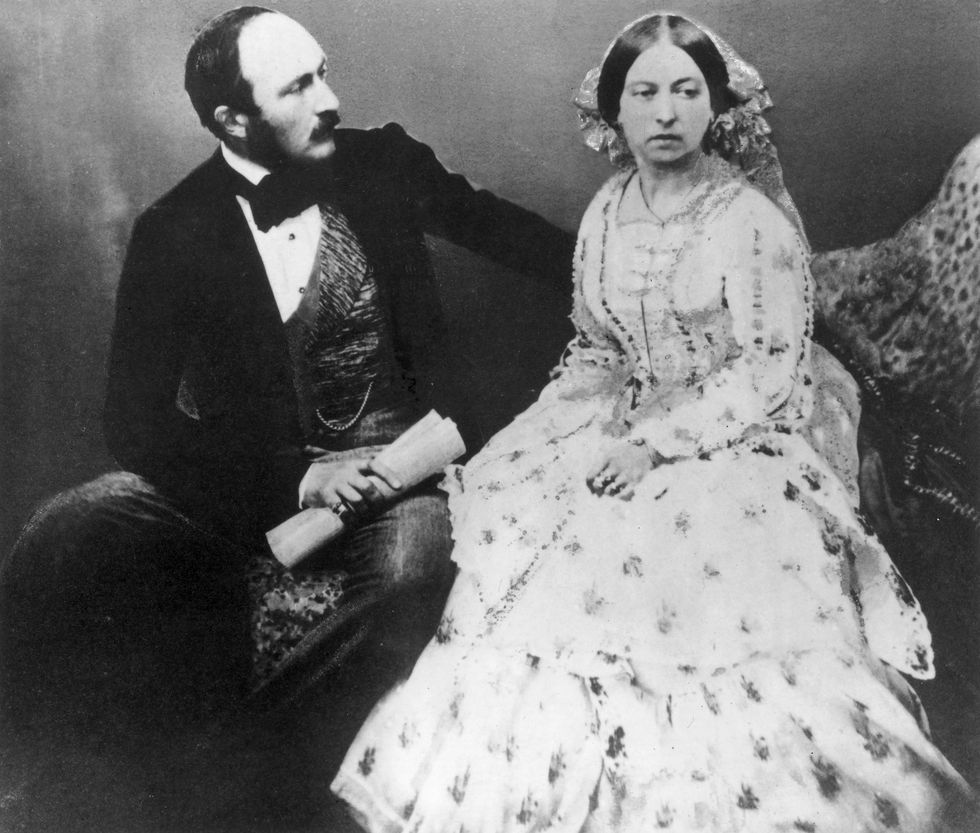 Over the course of her 63 year reign, Queen Victoria made an indelible impact not only on Britain, but on the world. And while many effects of her rule are still present in modern society, perhaps one of the most obvious remains the impact of her massive family tree on the current monarchies of Europe. After all, with nine children, 42 grandchildren, and 87 great-grandchildren, she more than earned the title "the grandmother of Europe."
Over the course of her 63 year reign, Queen Victoria made an indelible impact not only on Britain, but on the world. And while many effects of her rule are still present in modern society, perhaps one of the most obvious remains the impact of her massive family tree on the current monarchies of Europe. After all, with nine children, 42 grandchildren, and 87 great-grandchildren, she more than earned the title "the grandmother of Europe."
Born on May 24, 1819, Alexandrina Victoria was quite literally born to be queen. The daughter of Prince Edward, the Duke of Kent—fourth son of King George III—and German widow Princess Victoire of Saxe-Coburg-Saalfeld, Victoria was the result of a succession crisis that left her as the only legitimate heir to the throne. Just a month after her 18th birthday, the petite princess (she was barely five feet tall) became queen following the death of her uncle, King William IV.
In 1840, she married her first cousin, Prince Albert of Saxe-Coburg and Gotha, with whom she had a famously passionate connection. Though Albert had no official state powers as Prince Consort, he nonetheless had a major impact on the monarchy. An intellectually driven man—Albert prescribed himself an educational regiment requiring nine hours of study a day during his teen years—he not only served as regent during his wife’s nine pregnancies, he also had a significant role in encouraging scientific and technological innovation, and even helped organize the Great Exhibition in 1851.

Prince Albert and Queen Victoria in 1854.
Albert likewise played an active role in his children’s lives, seeking to mold their family into an example to the world of what royal families should be. Though he died at age 42 from what many scholars now believe to have been stomach cancer, his values carried down through many of the European royal lines through his children and grandchildren with Victoria.
After Albert died in 1861, Victoria remained in mourning for the remaining 40 years of her life, becoming the longest reigning monarch in British history until her great-great granddaughter Queen Elizabeth II.
Here is how their genetic legacy has shaped the royal families of Europe.
You can read a lot more, including a rather complete pedigree chart, in an article by Lauren Hubbard and published in the townandcountrymag web site at: https://www.townandcountrymag.com/society/tradition/a43365889/queen-victoria-royal-family-tree/,
 Latest News Articles
Latest News Articles Do you have an RSS newsreader? You may prefer to use this newsletter's RSS feed at:
Do you have an RSS newsreader? You may prefer to use this newsletter's RSS feed at: